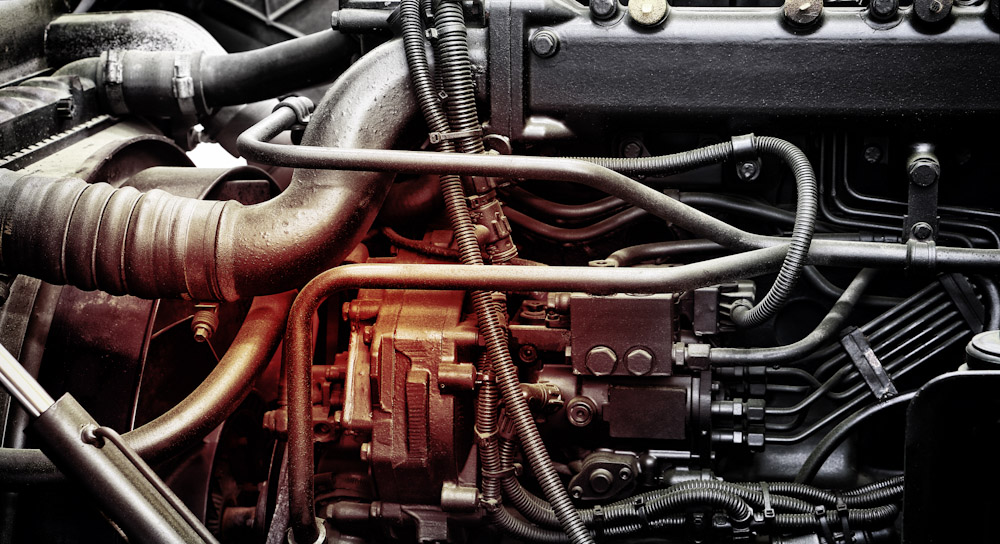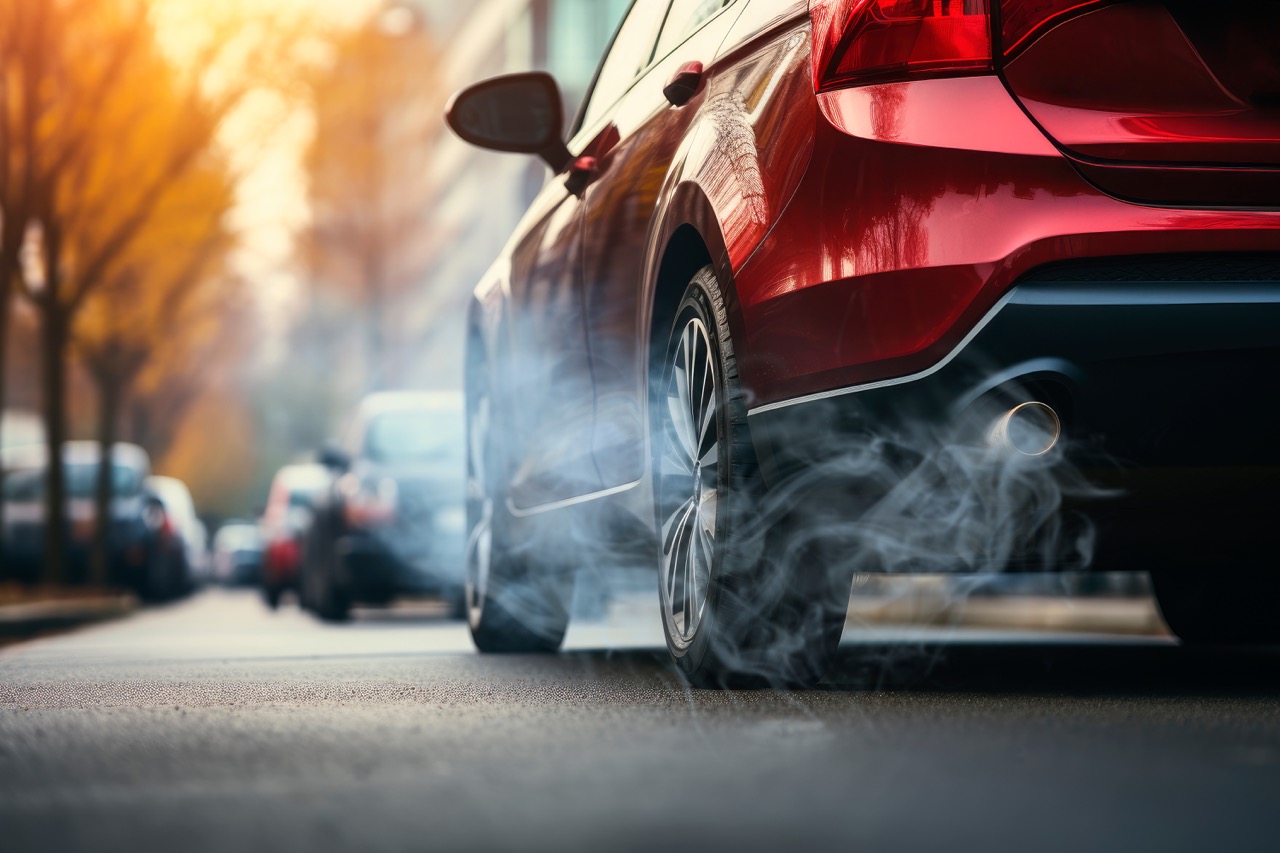
When you picture a diesel vehicle, an 18-wheeler or beat-up farm truck may come to mind. They weren’t always the epitome of sophistication, but they’ve come a long way. Brigham City car repair experts at Master Muffler want to help you understand the basics of diesel vs gasoline engine vehicles.
The gasoline-powered engine was invented in 1876 by Nikolaus August Otto. At that time, it used about 10% of the fuel poured into it to actually power the engine. The remaining fuel was burned and became heat energy.
Not long after, in 1878, Rudolf Diesel was studying gasoline use in engines and decided there had to be a more efficient form of fuel. By 1892 he had invented a combustion power engine as an alternative. Thus the modern diesel was born.
How Does a Gasoline Engine Work Differently Than a Diesel Engine?
Both types of engines need internal combustion and explosions to convert fuel into energy. The difference is in the process.
Gas engine combustion is controlled by a spark. The fuel mixes with air and is then compressed by the pistons in the engine. The spark plugs offer the spark needed to get the vehicle moving. In comparison, a diesel engine uses compression combustion. Air is compressed first, the process of which heats the air so it can ignite the fuel to propel the vehicle.
Another significant difference between a gasoline engine vs a diesel engine is the flashpoint, which is the temperature at which a vapor ignites. Gasoline has a lower flashpoint at 70 degrees F whereas, for diesel, it’s 126 degrees F.
Fuel Injection Process
How does the fuel get into the vehicle’s engine? In a gasoline-powered car, there can either be a port injection system or a carburetor.
- Port Injection System: injects air into the fuel before its final intake.
- Carburetor: mixes fuel and air together, then sends it into the cylinders for compression.
In a diesel-powered vehicle, the fuel is injected directly into the cylinder without air.
Which is More Efficient – Gas or Diesel?
A diesel engine is about 20% more efficient than a gasoline engine. This means you’ll get 20% more out of your fuel when you drive a diesel the same distance as you drive a gasoline vehicle.
Gas cars have twice as many revolutions per minute (RPMs) as diesel, so the wear per mile is double that of a diesel. Overall, diesel vehicles have a longer life expectancy due to being built with stronger parts so they can haul heavy loads and withstand the stress. You might schedule Brigham City car repair more often in a gasoline-powered car than a diesel-powered car.
When it comes to car repair costs, a diesel can be easier on the wallet. Diesel engines don’t show their age until closer to 250,000 miles of use. At that point, a removable liner in the engine itself can be replaced to give new life to it.
Gasoline engines perform well for up to 150,000 miles, depending on the upkeep of the vehicle. At this point, engine efficiency tends to decrease as parts experience overuse wear and tear.
For Brigham City car repair needs, we service both gasoline and diesel engines.
Gas vs Diesel Pollution
Let’s revisit that mental image you have of diesel vehicles: they chug along noisily and produce a lot of black exhaust. While that used to be commonplace, diesel engines are built more efficiently than they used to be, allowing them to run a lot cleaner.
Since a diesel engine uses less fuel to travel the same distance as a gasoline engine, a diesel does produce less CO2 than gasoline engines with the same amount of use. Scientific Reports published a study that newer diesel engine filters prevent up to 99% of emissions particles (PM10, PM2.5, NO2, NOx) from entering the atmosphere.
However, using air for the combustion engine process produces more pollutants because there are more chemical reactions in a diesel engine compared to a gasoline engine.
Gasoline engines do emit fewer fine particles and air pollutants such as CO2. But they are less efficient with their fuel, so more is used to travel the same distance as a diesel engine.
Essentially, the question can’t simply be “which type of engine produces more pollutants?” It’s not about whether diesel or gas pollutes more, but more about which engine produces what types of pollutants.
Gasoline vs Diesel Cost Comparison
When people look at the cost comparison of a diesel vs gasoline engine, it usually focuses on fuel efficiency and car repair needs. Overall, you are going to spend less on fuel when you drive a diesel. And because they’re built tougher, you can potentially own your diesel longer, giving you a better cost-per-use ratio.
For example, let’s say you purchase a $100,000 diesel truck. You drive it every day for 3650 days (10 years). This breaks down to a cost-per-use of $27 per day.
On the other hand, you purchase a $100,000 gas truck. You only drive it 2555 days (seven years) before it breaks down. Your cost-per-use ratio in this scenario is $39 per day.
Couple the cost-per-use analysis with less spent on fuel and maintenance, and it just might be best to purchase a diesel.
Related Posts
As an EV owner, understanding your vehicle's battery is critical. From its capacity to its lifespan, and everything in between, we'll guide you through what you need to know to optimize your EV experience. So buckle up and get ready - we're about to shed some light on the electrifying world of EV batteries. What [...]
If your car is running hot, it can be a sign that something’s not right with your engine. Fortunately, diagnosing the cause of an overheating engine isn't too difficult if you know what to look for and how to address it. Keep reading if you want to learn the most common issues that occur when [...]
Your vehicle's exhaust system serves a critical role in managing the byproducts of the combustion process and ensuring optimal engine performance. The appearance of colored smoke from the exhaust pipe, either when stationary or accelerating, can provide valuable clues to underlying mechanical issues. What is a car exhaust? A car exhaust is a system [...]





